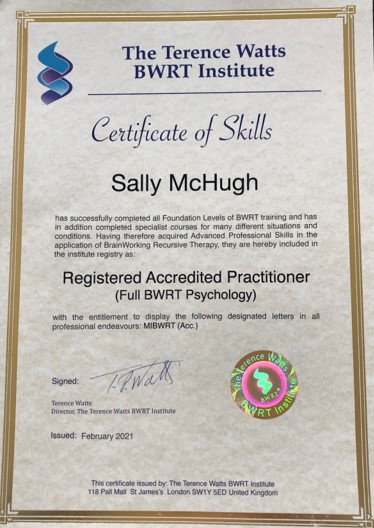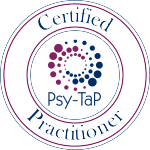Do you suffer from work-related anxiety?
Many people, even those who enjoy their jobs, will experience a degree of work-related anxiety from time to time. For most, this will come and go and doesn’t impact their lives outside of work. For a few, however, work-related anxiety can start to impinge upon their lives in what is supposed to be their downtime. Perhaps your Sunday evenings are overwhelmed by anxiety about what awaits you on Monday. Perhaps your evenings cannot be fully enjoyed because you have work next day, or your sleep is disturbed because of your anxiety around work.
Since Covid I am seeing a lot more people who come with work-related anxiety, and have developed a powerful treatment protocol that delivers fast results.
Work-related anxiety can stem from multiple sources:
Workplace bullying
Being bullied at work is a deeply affective and awful thing to experience, and even for those for whom it is in the past can experience the effects long after they or their bully has moved on.
Bullying at work is quite tricky to define, and in fact there is no legal definition. The Advisory, Conciliation and Arbitration Service (ACAS) defines workplace bullying as: “behaviour that is offensive, intimidating, malicious or insulting, an abuse or misuse of power that undermines, humiliates, or causes physical or emotional harm to someone.”
Examples include:
- constantly criticising someone’s work
- spreading malicious rumours about someone
- constantly putting someone down in meetings
- deliberately giving someone a heavier workload than everyone else
- excluding someone from team social events
- putting humiliating, offensive or threatening comments or photos on social media
I’s important to note that not all forms of workplace bullying come from above. Bullies can sit at any level in the hierarchy, but are most usually found above, or at the same level.
Imposter syndrome
There has been a much greater recognition of the power of imposter syndrome to create anxiety of late, Imposter syndrome is, in short, feelings of self-doubt or fear of failure in spite of multiple proofs to the contrary. It happens most to women, interestingly, and can persist well past those first few weeks in a new role. Imposter syndrome can create immense stress and anxiety, as sufferers spend more and more time thinking and worrying about work during what is supposed to be their leisure time, and can lead to burnout or a desire to quit their job, despite evidence of their ability to perform.
Feeling isolated
For many, the facility to work from home has been a huge benefit to their lives. For others, it has created feelings of isolation, of missing those feelings of community we have when we work in an office alongside our colleagues and fear of not progressing in their career as they can’t learn by watching and listening as their colleagues work. That sense of not being part of a team can lead to feelings of anxiety and depression, especially in cases where people live alone.
Presentation anxiety
The fear of giving presentations is common to the vast majority of people who work in an office environment. Standing at the front of a room talking to colleagues, even if you know them well, can create feelings of breathlessness, anxiety and a fear that you will forget everything you want to say, even if you have spent days preparing your notes and creating your Powerpoint. This fear of presentations has actually got worse since the onset of the Zoom meeting presentation, when you couldn’t actually see every colleague in a live environment. Face-to-face presentations and pitches are far more stressful than those where you can claim poor WiFi and switch your camera off.
Low self confidence and limiting beliefs
Quite often low self-confidence holds people back at work not because they aren’t capable, but because they send messages that suggest they aren’t capable, which works then to say to managers and colleagues that you aren’t the right person for new opportunities or a promotion, and then reinforces your low self confidence. Limiting beliefs will hold you back regardless of your actual abilities and talent, resulting in anxiety about lack of success or approval from those you work with,
Treating work related anxiety
It’s fair to say that I really enjoy working with people who come to me with work related anxiety, as my treatment protocol works rapidly and powerfully, allowing my clients to see results both at work and in their leisure time really quickly – relieving those feelings of anxiety and providing a robust basis from which they can reframe their work self.
Each individual has a different personal story, of course, but whatever the root cause of their anxiety a blend of hypnotherapy and BrainWorking Recursive Therapy combines to help change the way you think – moving from an expectation of not being able to cope to a belief that not only will you cope, but that you can thrive.
Those experiencing workplace bullying, which all too often takes away any feelings of power you have, regain their sense of self and build the tools they need to push back and deal with their bully in a controlled, calm manner, in accordance with their workplace’s policies.
Imposter syndrome, low self-confidence and presentation anxiety can be overcome by changing the brain’s focus away from fear of failure or ‘being caught out’ to celebrating successes and anticipating the win.
Work-related anxiety is a problem for so many people, but can be resolved, quickly and forever.
Call me on 0161 374 0227, or email sally@mindsolutions.co.uk. It’s time to take back control.
For more information you can contact me via the form below:
Finding help couldn’t be easier, just follow the directions on the map, our full address is:
197 Dane Road Sale M33 2NA
My Hours of Operation are:
- Monday to Friday 9am-7pm
- Saturday 9am-4pm






















Recent Comments